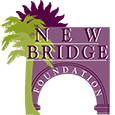
All-Time Winner
Overcoming chemical dependency can be challenging, especially if people attempt to do so alone. Of course, the best way to work toward recovery is to seek help from a quality addiction treatment facility. There, experienced professionals guide clients through detox as well as subsequent treatment programs using methods like medication assisted treatment.
What Is Medication Assisted Treatment?
 Medication assisted treatment, or MAT, uses a combination of medication and traditional therapy methods to treat chemical dependency. Doctors use it most often in cases of opioid addiction. However, medications exist to support the treatment of alcohol addiction as well.
Medication assisted treatment, or MAT, uses a combination of medication and traditional therapy methods to treat chemical dependency. Doctors use it most often in cases of opioid addiction. However, medications exist to support the treatment of alcohol addiction as well.
These medications function in different ways. Some medications replace the substance of choice so that the individual does not experience withdrawal symptoms but also does not have a euphoric high. An example of this type of medication is Suboxone, which doctors use to treat opioid addiction.
Other types of medications do not prevent withdrawal symptoms, but simply block the positive effects of opioids in the event of a relapse. One example is naltrexone. Doctors also prescribe this medication to help with alcohol addiction.
When it comes to alcohol dependency, there are special medications that can actually make people experience unpleasant side effects if they consume alcohol. These side effects act as a deterrent to prevent people from drinking. Probably the best known medication for assisting individuals in not consuming alcohol is antabuse.
While there are many options for medication assisted treatment, only a doctor can decide which method, if any, is suitable for any particular individual.
How MAT Works
Medication assisted treatment comes along with close supervision. Doctors prescribe specific dosages of a chosen medication to help individuals with their recovery journey. Throughout detox and treatment, the doctor and other treatment professionals closely monitor their clients to ensure they are administering the correct dosage. They also watch clients for side effects of withdrawal, as well as side effects from the prescribed medication.
How long clients stay on their MAT medications varies from case to case. Some may only need help during the detox process, while others may need the assistance of the medication throughout their treatment and beyond.
Benefits of MAT
Physical dependence can be a powerful force when it comes to trying to achieve recovery. The medications that doctors use in MAT programs can dramatically decrease the intensity of withdrawal symptoms. These symptoms are what drive people to relapse while they are attempting to achieve sobriety. They also remove the incentive of the high, making using opioids or alcohol less enjoyable.
Those with dependencies on opioids or alcohol stand to benefit the most from MAT. It is also helpful in cases where individuals attempted to stop using on their own, only to eventually relapse. With MAT, the chance of relapse decreases, due to both the support of the medication and the help given in therapy.
Medication Assisted Treatment at New Bridge Foundation®
New Bridge Foundation® offers a full scope of substance abuse treatments, including comprehensive detox program. Many people struggling with addiction need the supervision and support that a detox program offers. This support often includes MAT, but it ultimately comes down to the doctor’s discretion. We evaluate each client on a case-by-case basis to determine the best course of treatment for each individual.
Beyond our detox program, our other treatment offerings include:
- Short-term residential rehab (Helios)
- Short-term outpatient rehab (Helios)
- Long-term residential rehab (START)
- Free aftercare for life upon the completion of any of our programs
To learn more about how medication assisted treatment can open up the road to recovery, reach out to New Bridge Foundation® at 866-772-8491 today.
